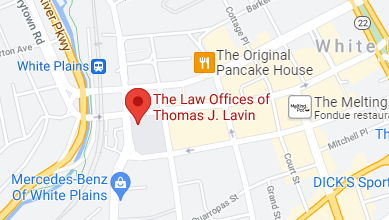Laws called statutes of limitations establish a time limit after an event so that any legal action concerning that event must begin in a reasonable period of time.
In the criminal system, a statute of limitation specifies the amount of time a prosecutor has to bring criminal charges against a suspect after a crime has been committed.
A statute of limitations in civil law limits the amount of time that a victim of negligence, for example, has to begin seeking compensation.
Generally speaking, when a civil statute of limitations expires, the legal claim is no longer valid, and an injured victim of negligence has no further legal recourse.
The exact length of a civil statute of limitations depends on which state has jurisdiction and on precisely what type of claim is being pursued.
Most states have also established several exceptions to their civil statutes of limitations. For example, in some states, including New York, a victim of medical malpractice is given more time to take legal action if he or she was a minor when the incident of medical malpractice took place.
In the state of New York, the statute of limitations for most personal injury claims gives an injured person three years from the date of the injury to file a lawsuit against the person or persons allegedly responsible for the injury or injuries.
Included in this category are injuries suffered in traffic collisions, premises liability cases that involve slip-and-fall or trip-and-fall injuries, cases that involve dog bite injuries or swimming pool injuries, and product liability cases where a person is injured while using a defective or flawed consumer item – anything from a can opener to a prescription drug.
In the New York City area, if you are injured or become injured because someone else – someone such as another driver, a property owner, or a product manufacturer – was negligent, you need to put a personal injury attorney on the case at once. Don’t wait three years.
Evidence can deteriorate or even disappear over time, and the memories of witnesses can rapidly fade. The sooner your Bronx personal injury attorney can go to work on your personal injury claim, the more likely it is that your claim will prevail.
WHAT IS THE STATUTE OF LIMITATIONS FOR MEDICAL MALPRACTICE?
The statute of limitations is slightly shorter – by six months – for medical malpractice cases in New York.
For most New York medical malpractice claims, the statute of limitations is two years and six months from the date of the medical malpractice incident or the end of long-term treatment that entailed medical malpractice.
There are several important exceptions, however, to that two-and-a-half year statutory limit:
If a patient is injured by a foreign object left inside his or her body during surgery, the medical malpractice claim must be filed within one year of the date the object was or should have been discovered, whichever comes first.
When a minor has been injured by medical malpractice in New York, the minor has three years from his or her 18th birthday to file a medical malpractice claim, but the maximum limit for any medical malpractice claim in this state is ten years from the date of the actual malpractice incident.
Statutes of limitations are complicated in New York. A number of exceptions are spelled out in state law, so calculating exactly when the statute of limitations expires on any specific personal injury claim may not be easy and may require an attorney’s help.
Victims of negligence who have questions or concerns about the statutes of limitations should have those questions answered by an experienced New York personal injury lawyer.
WHAT ABOUT INJURY CLAIMS AGAINST GOVERNMENT AGENCIES?
The New York Court of Claims Act waives the state of New York’s right to “sovereign immunity” and allows the state to be sued in almost any circumstance that a private individual could be sued for negligence.
However, if your injury was caused by the negligence of a state or local government agency or employee in New York, before you can file a lawsuit, you must first file a formal Notice of Claim with the government agency in question, and the agency must have time to answer your claim.
You have ninety days from the date of your injury to file a Notice of Claim against the state of New York, any New York county or city, or any state or local government agency. Upon receiving your Notice of Claim, the governmental body or agency may extend a settlement offer.
Don’t accept the settlement unless your personal injury attorney agrees that the offer is sufficient and just. Have a skilled Bronx personal injury attorney help you file your Notice of Claim and help you consider any response.
Understand also that if you are injured by the negligence of a government employee or agency in New York, you must act right away. With only ninety days to file your Notice of Claim with the government agency in question, you’ll need to obtain the help of a good personal injury lawyer at once.
If no settlement is offered or if the offer is insufficient, you have only one year from the date of the injury – instead of three – to file a lawsuit against a New York governmental body or agency.
IS THERE A STATUTE OF LIMITATIONS FOR WRONGFUL DEATH CLAIMS?
New York’s statute of limitations for wrongful death claims is two years. Wrongful death cases may arise from traffic collisions, construction accidents, medical malpractice incidents, and product liability cases involving dangerous consumer products.
Only the personal representative of a deceased person as appointed by Surrogate’s Court can file a wrongful death claim in New York. (Surrogate’s Court is the court that deals with estate and probate matters in New York.) The personal representative is usually the executor of the deceased person’s will or the administrator of the deceased person’s estate.
Anyone who is injured in New York by the negligence of another person or persons should speak to an experienced personal injury attorney regarding his or her legal rights, legal alternatives, and the amount of time remaining to take legal action.
Personal injury victims in this state are entitled under the law to full compensation for their medical expenses, lost wages, and all other accident and injury-related losses and expenses.









